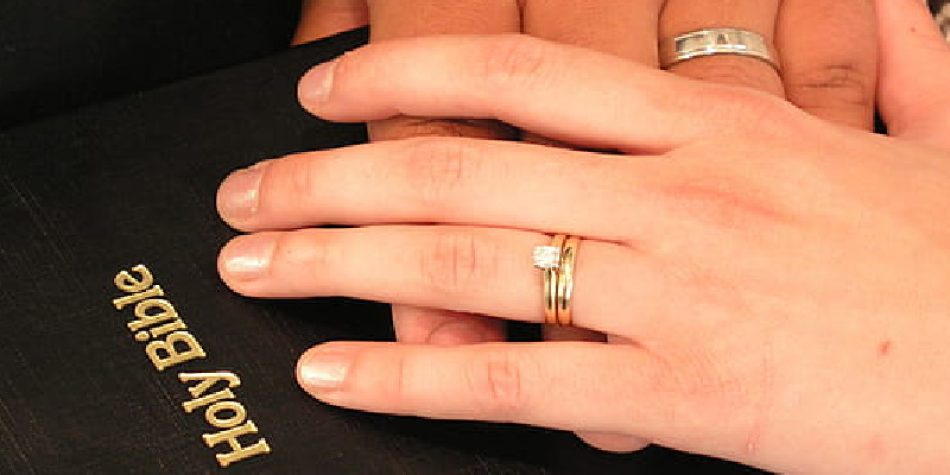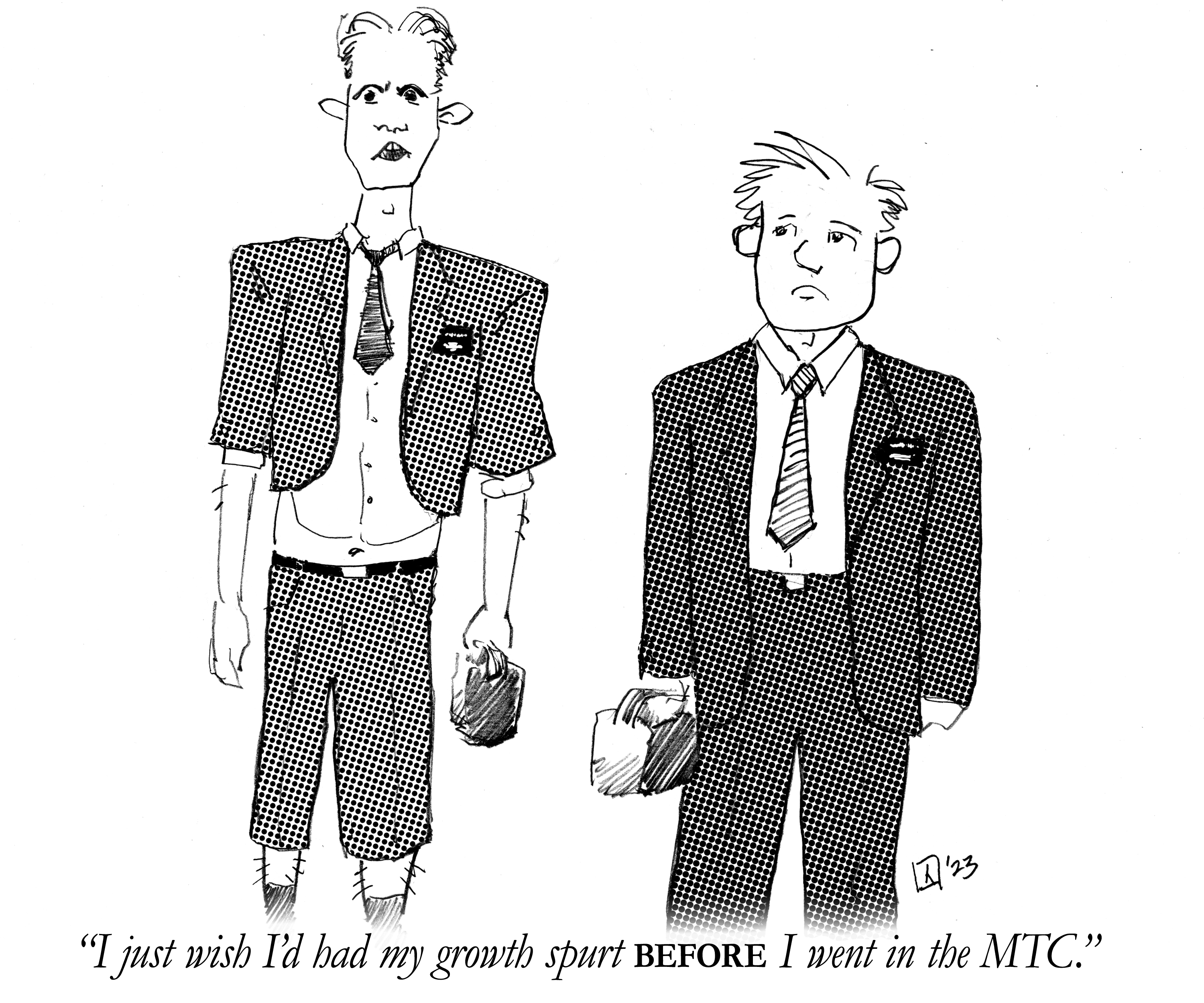A close friend (a younger male professor at another university) has permitted us to share this opening story anonymously: The strikingly attractive female student entered my office, closed the door behind her, and then moved far too close to me, almost pinning me against my desk. She put her lips inches from my face and gave me a “kiss me” look. Several seconds passed. The young beauty stepped back and paused for several more seconds. She then said, “My Dad just left my Mom for a younger woman. I had to find out if all men are like him or if there is still hope.”
Much has been written about the swelling “faith crisis” and “The Rise of the Nones”—a loss of religious faith, particularly among emerging adults. But there is another faith crisis among those coming of age that may be just as vital to address: Can an imperfect wife and an imperfect husband be faithful to each other? Is it possible to obtain, maintain, protect, and polish the elusive gem of complete marital fidelity across time?
Fidelity hails from the Latin fidelis, meaning “faithful, loyal, and trustworthy,” but for a growing number, the notion of complete marital fidelity is becoming as archaic as its Latin root. Twenty-two years ago, a 2001 Gallup poll found that about 90% of Americans considered marital affairs “morally wrong.” However, a recent (2022) report by Survey Center on American Life indicates that only 66% of Americans say it is always morally wrong for a man to have an affair, while just over half (55%) say it is always morally wrong for a woman. Standards seem to be shifting and sliding precipitously. But not for the majority.
A deep and honest look shows that infidelity has devastating effects on individuals and relationships, and children. A review of research on infidelity found that males and females now engage in infidelity at similar rates, that infidelity is the major cause of divorce, and that greater religiosity is consistently associated with less infidelity. Further, “Infidelity is reliably associated with poorer mental health, particularly depression/anxiety and PTSD, and relationship dissolution/divorce which has been shown to adversely impact offspring.”
In contrast, fidelity blesses the lives of many people who take their marital vows seriously. For more than 25 years, the American Families of Faith national research project has explored how religiously and relationally faithful women and men build exemplary marriages. About 300 racially and religiously diverse couples from around the U.S. have participated in in-depth interviews that reveal what it takes to build a joyful union that stands the test of time and challenges. This research has found and reported scores of themes and characteristics in these marriages, but the most precious and valued qualities are fidelity, trust, and deep respect.
What about Romantic Love?
A few of our emerging adult students have had almost vehement, reactive responses to the notion that fidelity, trust, and deep respect matter more than romantic (and/or erotic) love. Yes, romantic love is often the motivation to encourage the leap of faith to marriage but “All You Need Is Love” is woefully incomplete marital advice. The playwright Thornton Wilder wrote,
I didn’t marry you because you were perfect. I didn’t even marry you because I loved you. I married you because you gave me a promise. That promise made up for your faults. And the promise I gave you made up for mine. Two imperfect people got married, and it was the promise that made the marriage. And when our children were growing up, it wasn’t a house that protected them; and it wasn’t our love that protected them—it was that promise.
Love is not all we need. We need the fidelity of kept promises as well. Indeed, far too many have found that one version of hell on earth involves profoundly loving a spouse while the spouse’s infidelity obliterates the ability to trust them with one’s own heart, body, and soul. Marital trust and fidelity are profoundly precious. Trust can be bolstered for years but shattered in an instant. It is pointed awareness of these realities that lead “imperfect people,” like those in Wilder’s quote and those we interviewed in our American Families of Faith project (AFF), to remember their promises and to fiercely guard their treasure of trust and fidelity. Let’s hear the voices of three AFF participants:
Judith, a Jewish wife: [My husband’s] taken a few trips away … and people will say, “You let him do this?” And [I say] … “Yeah, because I trust him.” … [I]f we didn’t have that foundation of trust, then everything else would fall apart.
Sergio, a Hispanic Christian husband: “[One] thing that is very important in marriage is fidelity. When you’re not faithful, it doesn’t matter what [else] you can do or how sweet you can be. … [If there is] cheating on your wife or vice versa, no matter what you do, it’s hard to put the pieces back together.”
Isaac, a Black Christian husband: “Character and integrity in a marriage [are] everything and [are] … the most important source of strength [to our marriage]. … When you have character and integrity in a relationship, then you’re trustworthy. Then your mate, your spouse, has no worries, no hang-ups about where you’re at, what you’re doing. … [T]rust is crucial in a relationship.”
The Hunger and Hope for Faithful Marriage
In thousands of hours of informal conversations with diverse young adults from four universities where we have taught, many have revealed a bone-deep, soulful hunger for one real love that endures—a theme of the human heart so expansive that it occurs in classical literature, in scripture, and even in select rock and roll (see “Rock and Religion: The Pursuit of Everlasting Love”). Faithful marriage is not what everyone wants, but if you are invited onto the personal, sacred ground of young adults, many will reveal a desire for something far beyond “hooking up” at the next frat party.
Professor Bill Doherty, a leading marital therapist, and marital researcher, has similarly observed that most emerging adults want a strong marriage someday. Tragically, however, he notes that fewer and fewer believe it can actually happen. For years, we have given our college students the chance to share their greatest fears about marriage in assigned papers. Fear Number 1, by far, is: “I worry that my future spouse will cheat on me.” Fear Number 2 is: “I worry that I will cheat on my future spouse.” Indeed, the “other faith crisis” is very real.
The hunger and hope for a healthy, faithful, committed marriage run through the souls of many women and men across racial/ethnic groups, classes, and faith communities. While some wonder if faithful marriage is a fairy tale, here are voices from three diverse AFF participants:
Saul, a Jewish husband: “We … believe that life, in general, has rules … like treating people properly, showing respect, [avoiding] infidelity. … If you live that way, your life is generally going to be happy, and it is going to work out okay.”
Beatriz, a Hispanic Christian wife: “Loyalty, fidelity, integrity are key [to a good marriage].”
Tanner, an Orthodox Christian husband: “I spend two weeks a month on the road, there are temptations out there that I’ve never succumbed to, and one of the reasons is my faith gives me the strength not to do that.”
Why the Slide in Marital Fidelity?
Why the slide in marital fidelity? If Oscar Wilde was correct when he wrote, “Life imitates art far more than art imitates life,” then a portion of the blame might go to art, films, and music that have not only condoned but even celebrated infidelity. One example of myriad is the Stephen Stills-penned tune [If You Can’t Be With the One You Love], “Love the One You’re With” (1970-71), which rapidly became one of the more frequently covered songs in rock music history. The catchy tune was covered by legends like Aretha Franklin, Bob Seger, Joe Cocker, Luther Vandross, Diana Ross, and the Supremes, all taking their turns with the free love anthem. However, ideas can be as catchy as tunes, and ideas have consequences.
One of the consequences of marital infidelity involves exorbitant hidden fees. High portions of the crushing costs of infidelity often fall on the tiny shoulders of those so young and small that they do not yet carry their own wallets or purses. There must be a better way.
A very different way of deep fidelity honors one’s God, one’s partner, and one’s child. Three AFF participants explained their views in these ways:
Dawud, an Arab Muslim husband: “[I] truly believe in the Day of Judgment. When one believes in that, one lives the righteous way of life … . [M]arriage is not something where you can cheat, and the other person cheats … . ”
Fu, a Chinese Christian husband: “To keep your marriage holy is your responsibility to God … . Betray[ing] your spouse is betraying God.”
Aliyah, a Black Baptist wife: “God ordained marriage and family. … He ordained faithfulness. … It’s sinful to be adulterous or other things, and I think [faith] keeps you focused. … At times [you might give in] when you want to take the easy way out … but if you know God and you made this commitment with God, then you want to be faithful … instead of just saying, “To heck with it!”
A Hispanic Catholic husband and father from the American Families of Faith project said,
Fidelity, [and] integrity have a lot to do in the relationship of the couple and also in the relationship of the children. If [children] see [fidelity], they will want to emulate the example; they will want to live it because they will see that, regardless of the challenges and problems, there was fidelity.
Parental examples of responsibility or irresponsibility, of fidelity or infidelity, alternatively bless or harm dependent children. In another of our American Families of Faith interviews, a wife and mother we will call Angie recalled the trauma of learning of her parents’ infidelity, and her clergyman’s, as a young teenager. She said,
When I was in [my former] church, I hit rock bottom when my parents divorced, and then the minister was publicly humiliated because he was having affairs on his wife [too]. That was my loss in trust, my trust was totally broken, and my family life was shattered all at the same time. I had no idea where to go. … I had hit rock bottom.
For people like Angie, in the throes of “the other faith crisis,” is there hope for fidelity?
Rays of Hope for Fidelity
Later in her interview, Angie said,
My husband knows my worst fear before we got married was that I would divorce. That he would leave or I would leave [over] an affair … . But now, I have no fear that my husband will have an affair. I know him. I know his religion … I’ve seen a lot of men that when things get tough, they take off … . I can sit here and look you in the eye [and tell you that my husband will not cheat and will not leave].
Angie’s husband, an Arab-American named Omar, shared the following narrative that reflects her faith in him:
At work, our offices look out onto the parking lot. Every morning, all the engineers gather into this one guy’s cubicle at 7:45 [as the women start to arrive] and say, “Ah, look what she’s wearing. She looks good!” Typical, it’s a normal thing between guys. But by saying these things, you are degrading that woman, you are gossiping. Knowing that these things will be written [in my heavenly book] prevents me from [participating] and from that, your entire behavior is changed. [Instead], you are sitting in your office doing your work, which is what you are supposed to be doing.
Omar’s narrative captures and reflects an ideal encompassed by the Abrahamic faiths, namely, that it is wrong for a man to even look inappropriately at a woman and to entertain adulterous thoughts. Similarly, Pakeezah, an Arab-American, Shi’a Muslim wife, similarly noted that sometimes “there is infidelity [in thought], even if you are not cheating [in action].”
Tevya, an Orthodox Jewish husband, said of the tzit tzit on his tallit katan, a sacred garment he wears under his shirt,
[T]he purpose … is to not be led astray, or sexually be distracted. If your eyes are straying on other women, you’re supposed to look at the tzit tzit and remember that there’s a higher purpose and that there’s something else I’m supposed to be doing. And it’s related to my wife, [to] being faithful to my wife.
Truly Satisfying Sex
Some emerging adults wonder, however, does a traditional, God-oriented view of marital fidelity make sex boring, predictable, or low quality? In a 2020 study based on a national sample of 1,368, a team of social scientists led by Professor Jeff Dew concluded, “Our findings suggest a new adjective best describes marital sex between religious couples: ‘satisfying.’” Perhaps no AFF participant we interviewed embodied or expressed this concept with as much ebullience as a Black Christian wife named Jasmine, who said:
[T]he other thing that I appreciate about [my husband, Ty, is that] he is my lover, and he’s an awesome lover. He takes the time to make sure that my needs are met. He’s not selfish in the bedroom. I know when we go up there, he’s looking out [for me]. [P]eople tease us about our sex life because we’ve always been varied and experimental. [O]ur children, we always said to them, “[Our love] is keeping Jesus happy because [our] marriage bed is undefiled.” And I said, “So, if you want to know what’s going on [in our bedroom], Mama and Daddy are just keeping Jesus happy.”
We are also reminded of another AFF interviewee, Lance, a devoted husband, and a father to eight children, who was chided by an acquaintance, “Eight kids?! Don’t you know what causes that?” Lance’s response was, “What causes that is being committed to and deeply in love with the same amazing woman for 25 years.” Lance further said of his wife, “I can imagine no heaven without her, and with her, even hell would be tolerable.”
Fidelity and Commitment
Leading therapist and researcher William Doherty, referenced earlier, has written that there is marital “commitment-as-long-as” and “commitment-no-matter-what” (p. 21). We turn to one AFF husband who has quietly lived a monumental version of commitment.
For J.D., a black, Latter-day Saint husband and foster father of five we interviewed, fidelity and commitment came at an especially poignant price after his wife Betsy was struck by an intoxicated driver in 2005. Betsy’s legs were amputated, and she lost her ability to communicate clearly. In our initial American Families of Faith interview with J.D. and Betsy 18 years ago, Betsy was still recovering in a hospital-style bed in their home. Betsy knew that their marital life had been forever altered and told J.D. that she would not blame him if he left her and their extremely difficult situation. J.D. then turned from the interviewer, faced Betsy, and said,
You know, like I told you, I said ‘til death do us part. I’m going to be here, I want you to be here for me too. That’s what my Mother told me. [She] said before we got married, “[You‘ve] got to listen to the words.” That’s what my Mama said, “If you [are] truly, really, ready to get married … you got to listen to the words.” That’s what I did, I listened. That’s what I want it to be, ‘til death do us part. That’s where I want the relationship to be. I’m always going to have [your] back, and I want you to have mine.
Today at about 3 PM, 18 years after the drunk driver hit his wife, J.D. will do what he does almost every day. He will gently lift Betsy from her wheelchair into their van, and they will go for their afternoon drive—to savor the only mobility and physical freedom Betsy now enjoys. When J.D. made his vows of fidelity, he truly did “listen to the words.”
Witnessing this sacred afternoon ritual of a husband literally lifting his wife who has placed all her trust in him, leads a soul to freshly ponder the meaning of fidelity—“faithful, loyal, and trustworthy.” Is such fidelity common? Perhaps not, but some exemplary marriages show us that fidelity is beautiful beyond description. Just as importantly, such examples may serve as models of what is possible. Fidelity is not dead, and neither is hope, but we have got to listen to the words.

















